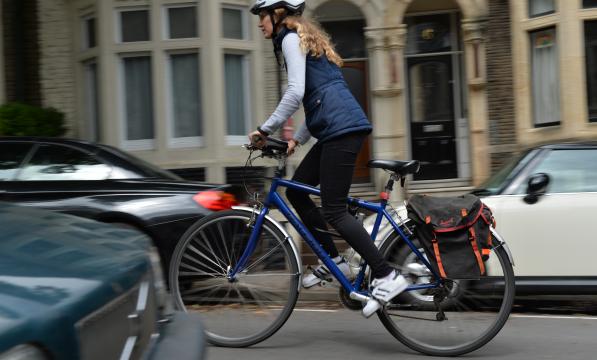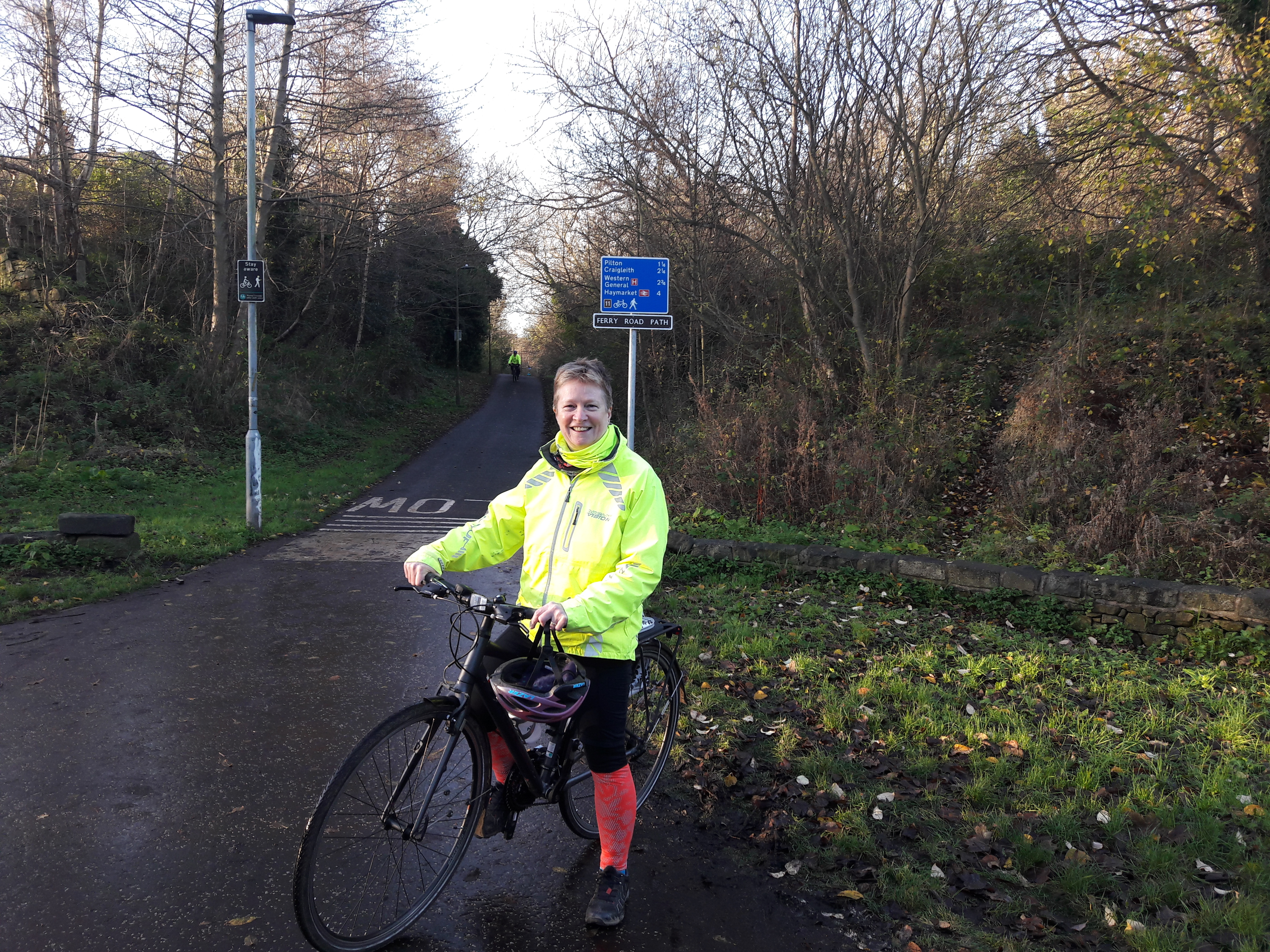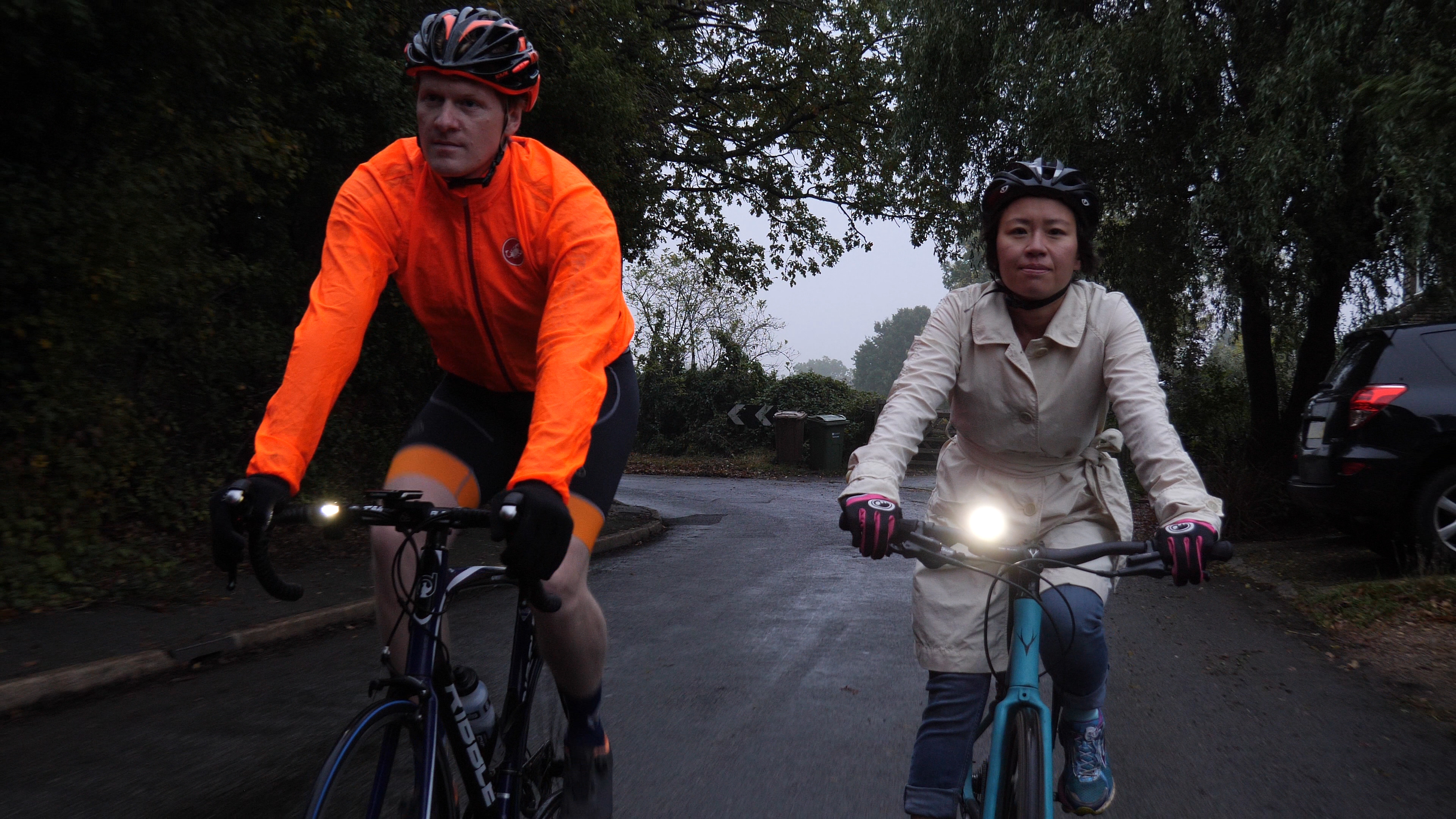Can cycling boost your immune system?

Supplies of the much-heralded vaccine are initially limited, so the NHS will first offer it to those at highest risk of catching the disease and of suffering serious complications or dying from coronavirus. This includes older adults in care homes and frontline health and social care workers.
The NHS says the vaccine will then also be offered in age order to:
- those aged over 80 years
- those aged over 75 years
- those aged over 70 years
- adults on the NHS shielded patient list
- those aged over 65 years
- adults under 65 years with long term conditions
Once more vaccines become available, they will be offered to other people in at-risk groups, but as there is likely to be some delay before large sections of the population can be vaccinated, so many of us will need to stay fit and healthy throughout winter in anticipation of receiving two shots – around 21 days apart.
Can cycling play a part in helping to keep us healthy until we receive the vaccine?
Vaccines work by exposing the body to a small part or weakened form of a particular virus, so that the immune system can learn to recognise it and trigger the production of specific antibodies to fight off the infection.
Prof Geraint Florida-James is the research lead for sport, health and exercise sciences at Napier University in Edinburgh. He is also the academic lead at the Mountain Bike Centre of Scotland, where he coaches and trains enduro-MTB riders and maintains that for those looking to strengthen their body's immune system, cycling is a great activity.
He says: “As humans, we were never designed to be sedentary, and study, after study, after study has shown that being active is good for you, and that includes your immune system. We will all see declines in physical abilities as we age, and the immune system is no different. What we are trying to do is slow that decline as much as possible. Cycling is a great way to do this as the body is supported and it is less impactful on the musculoskeletal system. However, it is about getting the balance of activity (intensity/duration/frequency) and rest/recovery right to get the most benefits from the activity itself in strengthening the immune system.”
Don't overdo it, but do wash your hands
Prof Florida-James may spend much of his time training elite mountain bikers, but his insights can be equally applied by the weekend cyclist, it's all a question of getting the balance right; he says:
“Like all training, if you build up slowly and allow your body to adapt to the stress of the ride lengths increasing, then it will react positively. If, however, you build up too fast, constantly taking your body into the red zone and not allowing enough recovery, then you can be more susceptible to bugs. You have to be exposed to the bugs however, so avoiding contact with ill people when in harder training times is a good step.”
“If the pandemic has taught us anything, then it is that good hygiene habits are key to staying healthy," he adds. "I have been pushing these messages with my athletes for years and although difficult at times it can mean the difference between staying healthy or catching that bug. These include for example: hand washing; avoiding people with potential bugs if possible, which can be as simple as not squeezing up beside someone in that café when out on that long ride; avoid touching your face, mouth and eyes - do these all sound familiar? Of course they do, now. Hopefully, we will see a more normal life returning soon, but there are lessons here to be taken forward into the "new normal" which will help to keep us all healthy."
If someone rides less in winter, what else can they do to keep healthy?
With short daylight hours and fewer bursts of good weather, it can be a challenge to keep riding during the winter, and beyond the hygiene measures he mentions, Prof Florida-James says it all comes back to balance again. He said: "You need to ensure you have a well-balanced diet, in particular that calorific intake matches what you have expended, particularly following longer rides. Sleep is extremely important too, it is an active part of recovery and another key factor in the jigsaw of staying healthy and keeping on top of your activity."
If the pandemic has taught us anything, then it is that good hygiene habits are key to staying healthy
Prof Geraint Florida-James, Napier University
No easy fix
"There is no magic bullet out there that keeps our immune system functioning well, rather it is a combination of different factors that we need to attend to, on an ongoing basis, that will give us the best chance of staying healthy. One really important component however, which is sometimes overlooked, is psychological stress,” Prof Florida-James suggests. People who have been managing a series of long rides successfully become ill when there is a life stress event, such as a bereavement, house move, exam or a relationship break-up: “The additional stress placed on the immune system can be just enough to push them over the edge, so it is at times like these that we need to be even more vigilant and look at coping strategies to minimise the stress,” he added.
“On the upside however, you can of course positively influence mental health and well-being too, and one excellent way of doing this is cycling outdoors,” he says, “it’s great in the armoury of coping mechanisms for stress.”
What the studies say
Another expert in exercise and immunology study, Dr John Campbell, from the department for health at the University of Bath published a study in 2018 with colleague James Turner 'Does running a marathon increase your risk of infections?' looking at just that.
Their study looked at research from the 1980s and 1990s that had contributed to the commonly-held belief that some forms of exercise, such as endurance events, suppress your immune system and leave you at risk of infections, like the common cold.
This myth has been largely debunked, but it has persisted to this day, though Dr Campbell says the idea that competing in a marathon - or going on a long distance cycle ride for that matter - could be bad for you, can be challenged on three fronts.
Dr Campbell explains: “Firstly, there were reports that runners were more likely to report symptoms of infection after participation in marathon events, compared to non-exercise controls (ie people who do not participate in a marathon). The problem with these studies however, is that it is high likely that marathon runners were exposed to more infectious pathogens than the non-exercise controls. So, it was not the exercise that caused immune suppression, but rather, that exercise participation (at marathon events) which increased exposure risk.
"Secondly, it has been speculated for some time that strenuous exercise depletes the main type of antibody in saliva – called ‘IgA’ (IgA is one of the main immune defences in the mouth). Indeed, some studies in the 1980s and 1990s pointed to a decreased amount of IgA in saliva after long-duration exercise. However, many studies have since shown the opposite effect. It is now clear that other factors – such as dental health, sleep, anxiety/stress – are much more powerful mediators of IgA and have more of an impact than exercise does.
"Thirdly, it has been shown many times that immune cell counts (which increase in the blood during exercise), are lower in the blood in the hours after strenuous exercise. For some time, it was thought that immune cells were exhausted or dying, which may in turn lower immune function and increase susceptibility to infection. This theory has largely been discounted, because immune cell count quickly returns to normal a few hours later (which is faster than new immune cells could be ‘reproduced’, and thus immune cells are probably not dying en masse). What may be happening in the hours after exercise is that immune cells are redistributed to different sites in the body, such as the lungs and gut, to conduct immune surveillance for pathogens. Thus, it seems that having a lower white blood cell count after exercise is not a bad thing after all."
Being physically active can improve immune function, particularly as we get older
Dr John Campbell, University of Bath
Another study from the same year by Kings College London and the University of Birmingham, found that doing regular exercise can prevent the immune system from declining and protect people from infections - though the research was carried out before the emergence of the new strain of the coronavirus.
The study published in the journal Aging Cell followed 125 long-distance cyclists - some now in their 60s - and found that they had the immune systems of 20-year-olds.
Researchers believe that being physically active in old age helps people respond better to vaccines, and so be better protected against infections such as flu.
Will cycling help my body respond better to the coronavirus vaccine?
Like so much else around the various vaccines which have been developed in record time, it's simply too early to be able to predict that. Coronavirus is such a new virus that the scientists we spoke to say we still have a long way to go before understanding what effect the vaccine has on different sections of the population.
Dr Campbell says: "At this stage there is no evidence yet that being physically active will help the immune response to any of the coronavirus vaccines.”
He adds: “There is a growing body of scientific literature which suggests that being physically active can improve immune function, particularly as we get older, and in turn, this may result in improved immune responses to vaccination. Therefore, the best advice is to follow the World Health Organisation’s physical activity guidelines, which suggest 150 minutes of moderate or 75 minutes of vigorous exercise per week (such as jogging or cycling), with some resistance exercise too.”
So the good news is, carry on cycling. Unless you have symptoms, such as a temperature or a continuous cough, in which case you must stay at home and self-isolate for seven days.
For further advice about cycling during the coronavirus pandemic, view Cycling UK's FAQ article.





